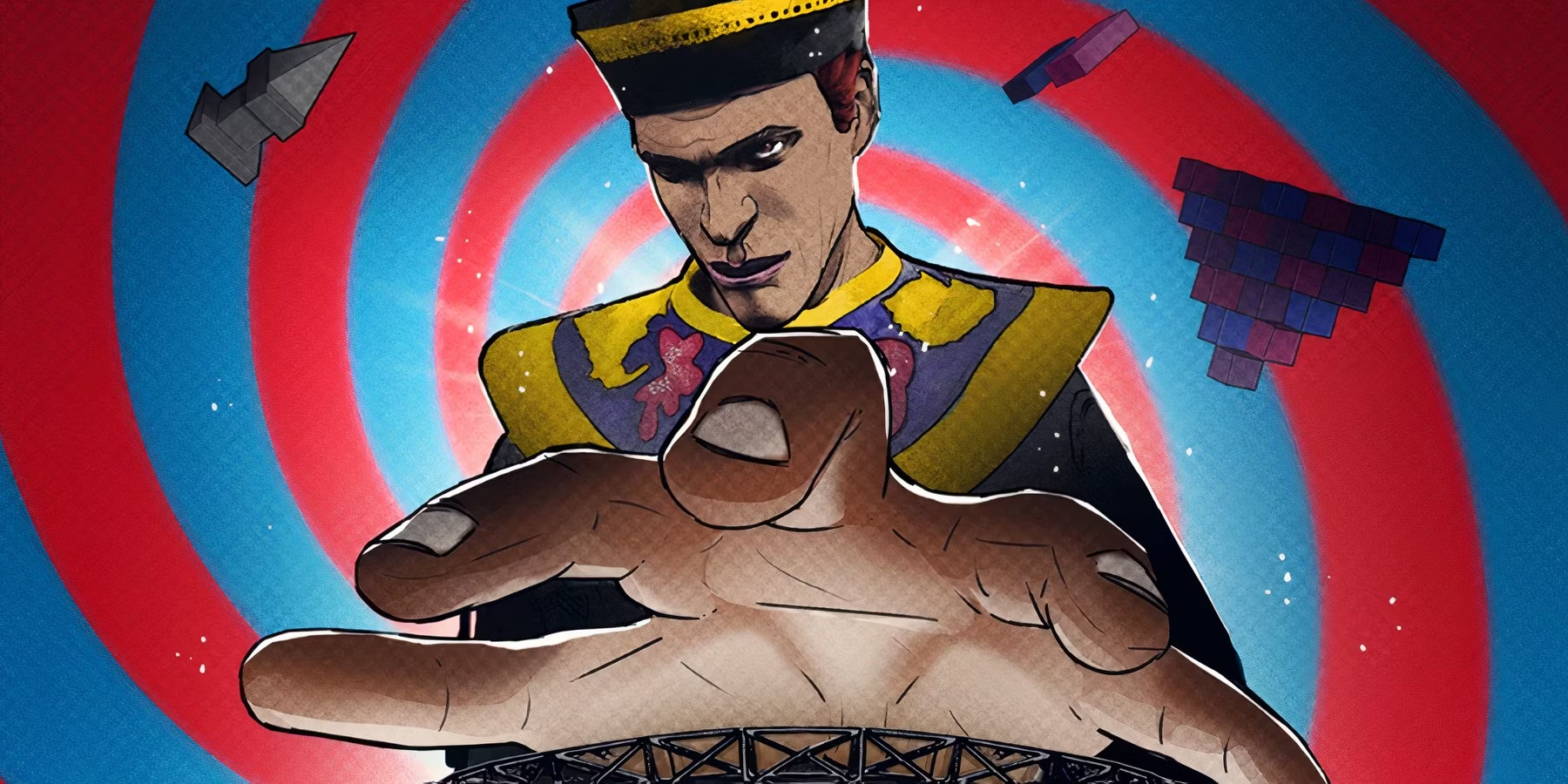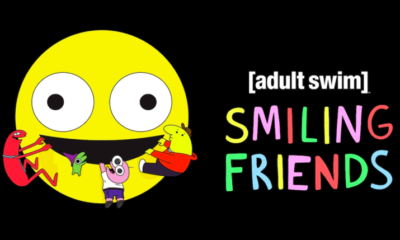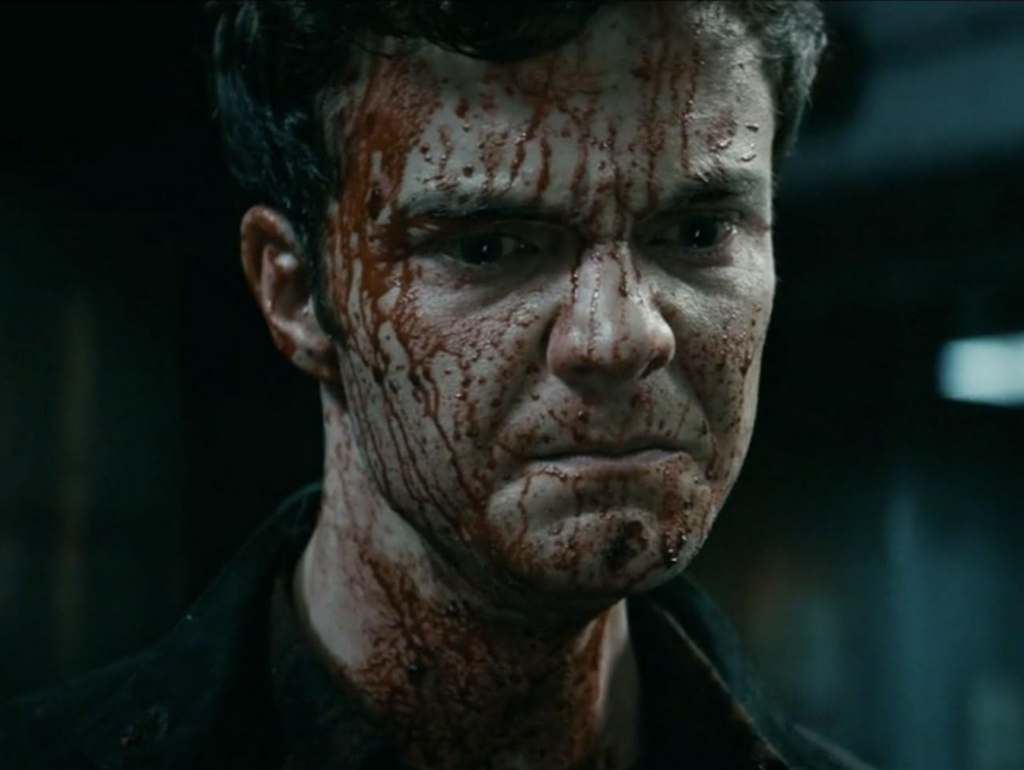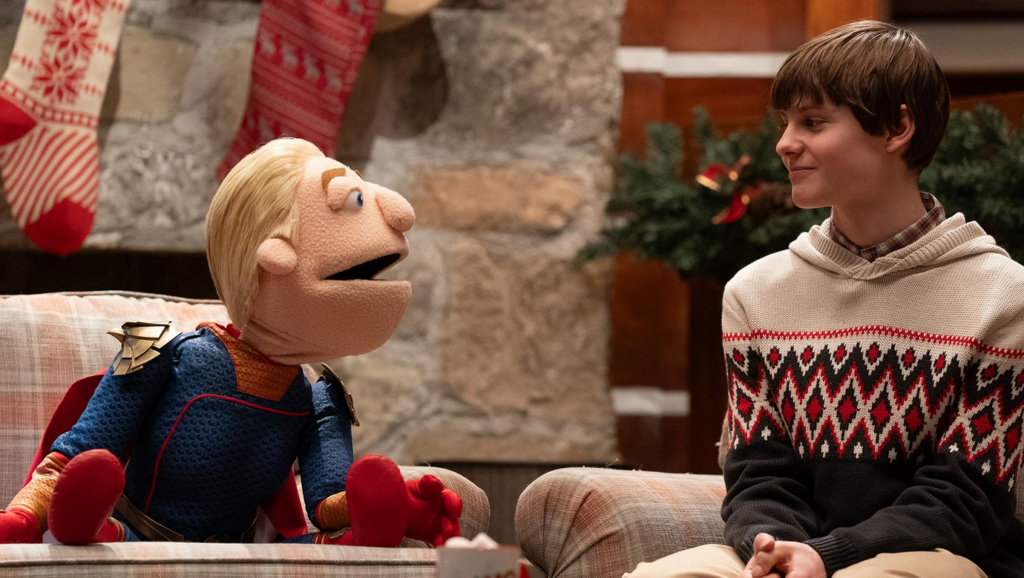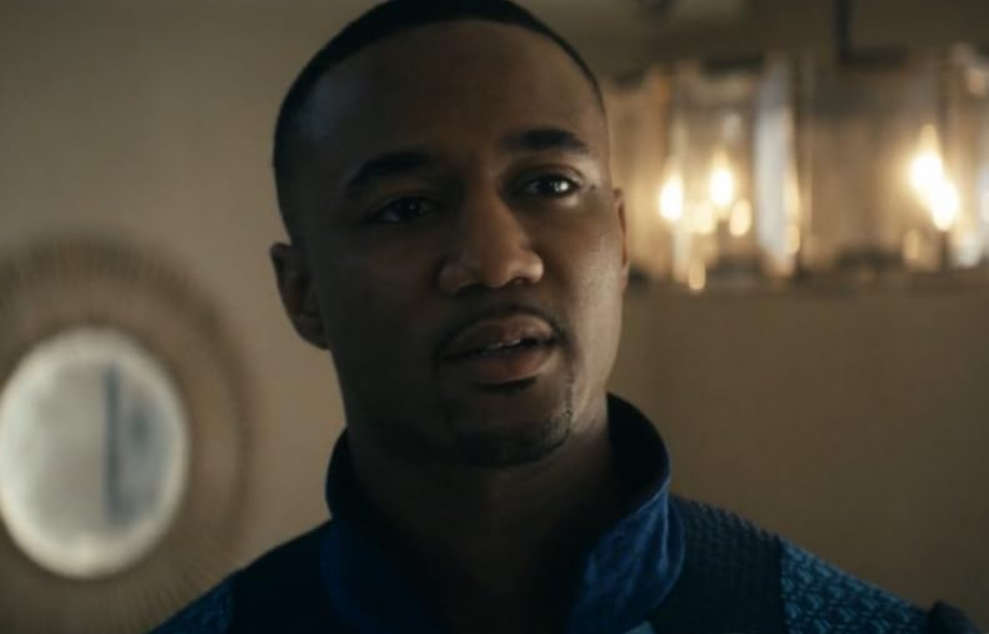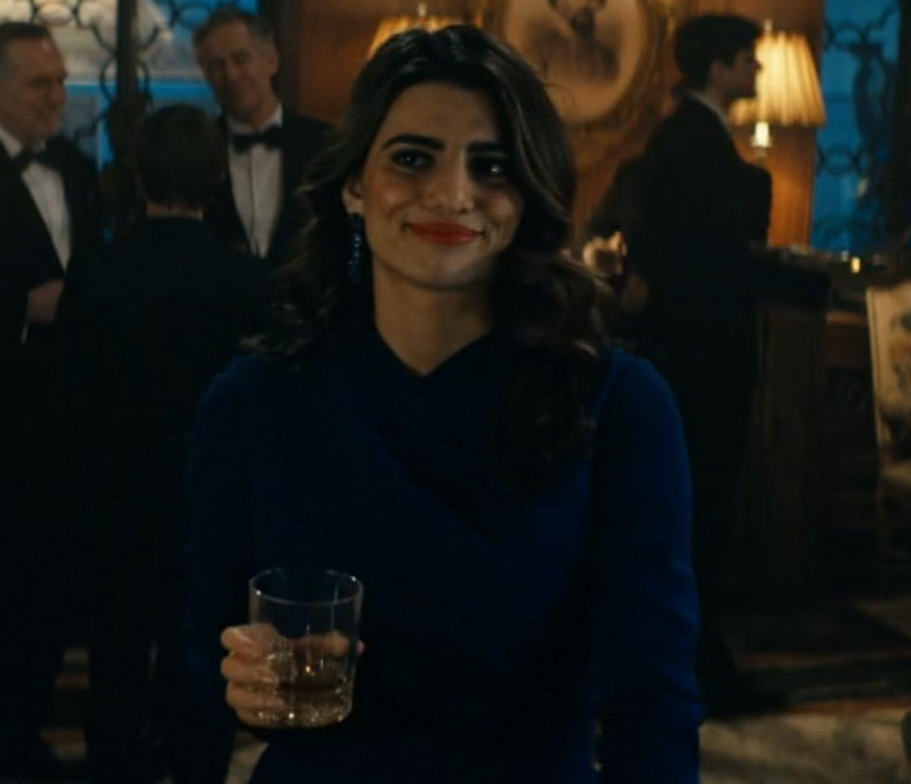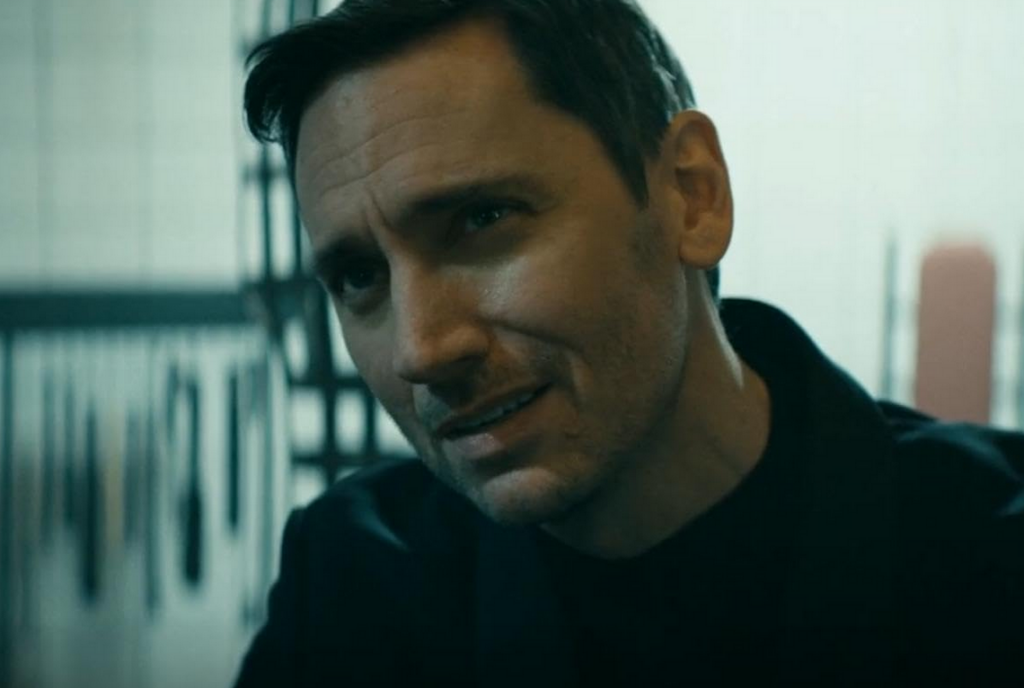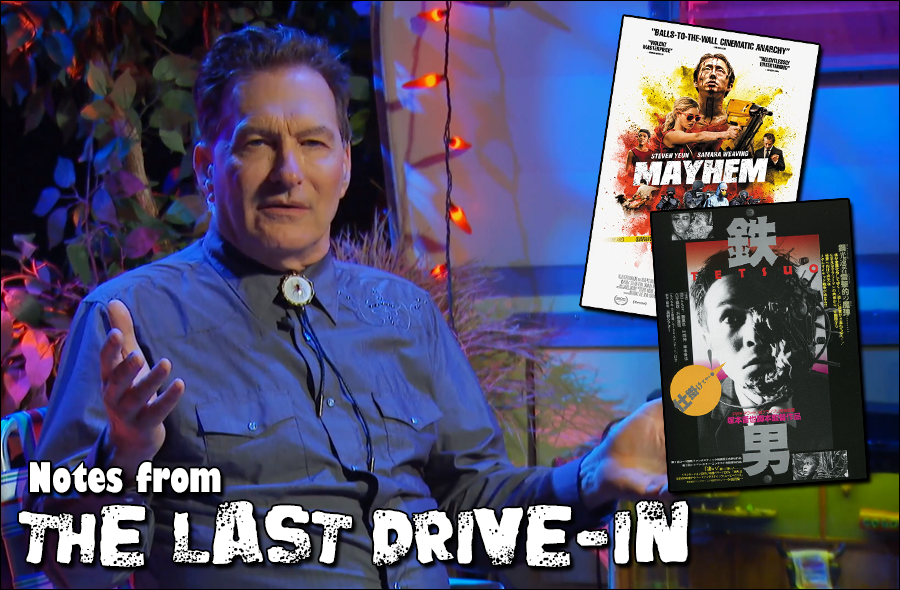
Notes from The Last Drive-In: S2E7
More Videos
Published
4 years agoon
Haha, what the Hell, folks. What just happened? Please let us know you’re okay and not turning into sentient industrial junkyard.
Oh, and welcome to Notes from The Last Drive-In.
I don't say this very often but this is weird, right?#thelastdrivein @therealjoebob @kinky_horror @shudder— Haunted MTL 🏳️🌈 (@HauntedMTL) June 6, 2020
Mayhem (2017)
This is the longest and strangest episode of The Office I have ever seen.#thelastdrivein @therealjoebob @kinky_horror @shudder— Haunted MTL 🏳️🌈 (@HauntedMTL) June 6, 2020
Opening Rant: Evading taxes with creative accounting.
Tonight was not my first experience with Joe Lynch’s Mayhem. One of my first reviews on the site way back last year was for the Shudder exclusive, a review, coincidentally, written on my birthday. I was particularly effusive with my praise of the film, and I had maybe seen it one other time since. Does it still hold up?
Hell yes it does.
Mayhem is a very fun, energetic film with a simple plot but is still incredibly satisfying. The pairing of Steven Yeun and Samara Weaving is one I am eager to see again and it’d be great if they were reunited with Joe Lynch, who has a fun little cameo as an IT guy. It’s not a deep film, and it is not my favorite “tower” film out there, but it is one that I can probably watch at least a couple of times a month. It just clicks. It has a great score, it has some fun fights, just enough gore, and just about every character delivers something cool, shocking, or repulsively capitalistic.
Joe Bob’s assessment was fair. He gave the film three stars and his criticisms, the legitimate ones at least, make sense. As bold and assertive as the film is at times, it also feels equally reticent to really dig into violence. Sure, there is on-camera sex (apparently the Serbian extras just went for it, hard) and plenty of blood, but the lack of kill shots for major characters feels lacking. It is sometimes said that the mind makes horrors greater than any filmed moment, but that doesn’t really seem to be the case here. Significant deaths seem to happen off-screen and any violence displayed stops just short of the actual moment of death.
It’s a strange thing to talk about, particularly given what is going on in the world (talk about a timely movie for this season, too). A film like Mayhem is in many ways a form of catharsis. It is violent, stylish, and scratches an itch for a desire to just wreck stuff, but the reluctance to go further feels like a misstep.
Most of the criticism lobbed at the film was tongue-in-cheek. Joe Lynch is a big fan of The Last Drive-In and often live-tweets his reaction to the episodes. The back and forth between the screen and twitter accounts was truly hilarious and the show could benefit from having him on as a guest in the future.
As for my own assessment, I still very much enjoy Mayhem and it’s worth many, many re-watches. Sure, I wish it were a little bloodthirstier, but I cannot fault the film too greatly for it. After all, though it was filmed in Serbia we certainly don’t need another Serbian Film. Mayhem is a four and a half Cthulhu film.

Best Line: “No, Derek. This – this – this meditation & this incense, it’s all bullshit. You think I like the taste of kale? Come on! I’m fucking dead inside.” – Ewan
Testuo: The Iron Man (1989)
What, you have never seen metal fusion hybrid gay sex before?#thelastdrivein @therealjoebob @setdarcyfree @shudder— Haunted MTL 🏳️🌈 (@HauntedMTL) June 6, 2020
Opening Rant: Cyberpunk and whatever the hell Tetsuo is.
What the actual Hell? If The Last Drive-In wanted to open Pride month with a weird, oddball film, well, they absolutely nailed it. And then shoved those nails deep into the thighs of viewers all over the internet.
Tetsuo: The Iron Man might be the cultiest of the cult films that has ever aired on the show. Shin’ya Tsukamoto’s film, at least the aired cut, is just over an hour in length but may still be a bit much for the average viewer. The best way to describe the film is that it is like cyberpunk exploration of sexuality, technology, and the guilt/pain of coming out, particularly when the coming out is motivated by trauma. I think I have a handle on the film, but I can’t really be sure. I don’t know if I can be sure of anything anymore.
I hesitate to call it a “film” in the sense that we are used to as viewers of The Last Drive-In. That is not an indictment of the quality, Testuo is well shot, edited, and is absolutely striking, but more an observation that the material skews a bit too arthouse in my opinion. It’s like an extended art project. Yes, a narrative is there, a character grows, and you get some sense of closure, but so much of what surrounds that seems to be experiments in visual and audio to the detriment of compelling storytelling.
I am glad to have finally really watched Tetsuo beyond clips at goth clubs but I don’t know if I really feel it is something I feel compelled to explore further unless I am perhaps under some form of chemical stimulation.
Joe Bob’s assessment of the film is particularly hilarious. You can tell he admires the artistry that had gone into it, and his own knowledge of the punk scene of the 1980s endears him to me even further. But perhaps the oddity of Testuo is best summarized at the moment where Joe Bob Briggs waffles between one star and four stars several times, essentially hedging his bets and telling his audience that even he knows that this is a weird one.
It was a weird, hilarious watch with the MutantFam and even resulted in a guest appearance from mangled-dick expert Felissa Rose. The Last Drive-In has had a few oddball films during its run. It just seems very striking they all seem to come from Japan.
While I can’t say that I am in love with Tetsuo: The Iron Man, I can say I am glad I experienced it. I may even experience it again sometime, but I’ll probably be on something when I do. Given that, I don’t think I can go higher than two Cthulhus for the film, a cyberpunk-pillar that it may be.
 (2 / 5)
(2 / 5)
Best Line: “Together, we can turn this fucking world to rust!” – Metal Fetishist
Haunted MTL Drive-In Totals
As per usual, the Drive-In totals for a Japanese film are suitably bonkers. But extra credit to Mayhem for “Dead Body Pissing.”
This week’s Drive-In Totals brought to you by Queen @Sweaving’s eternal badassdom. #TheLastDriveIn pic.twitter.com/QddgjpDZDX— Shudder (@Shudder) June 6, 2020 4 Stars? 1 Star? Tetsuo’s Drive-In Totals are… confusing?#TheLastDriveIn pic.twitter.com/8lnJulP57H— Shudder (@Shudder) June 6, 2020
What about our totals? A little lacking this week, admittedly. I was too taken in by the madness that was Tetsuo: The Iron Man.
- 1 Darcy Jailing
- 2 Level Cards
- 2 Very Enthused Extras
- Elevator Antics
- Basement Bash
- 2×4 Fu
- Yuki Fu
- Tunnel Running Fu
- Black and White Fu
- Director Cameo Fu
- Drilldo Fu
- Exploding Acne
- Office Aardvarking
- Mouth Macing
- Cocaine-Fueled Club Swinging
- Joe Bob Stumping
- Director Insulting
- Divorced Barbie Joking
- Alaskan Whorehouse Joking
- Gratuitous Ernie Parody
- Gratuitous Flashback
- Darcy Cosplay: Melanie
- Silver Bolo Winner: Witch Finger Podcast

Episode Score
A general crowd favorite film paired with such an oddball Japanese choice is probably going to be a bit divisive overall. It also was the shortest episode of The Last Drive-In yet, but that’s not necessarily a bad thing. Testuo was rough.

Please join us next time when we live-tweet The Last Drive-In. It’s always a blast and we’ve had more of our writers pop in with each episode so you don’t have to put up with me alone.
David Davis is a writer, cartoonist, and educator in Southern California with an M.A. in literature and writing studies.

You may like
We have come now to the finale of season four of The Boys. And while it didn’t have the literal blood fireworks I wanted, someone did get ripped in half in the air. So, that’s pretty close.
As a note, I will try to avoid spoilers as much as possible. This ending was a hell of a gut punch that should be experienced as blindly as possible. That being said, I will not be able to avoid spoilers and still give a full legitimate review. Proceed at your own risk.
The story
The main storyline for this episode is the attempted assassination of President-Elect Robert Singer. The Boys join forces with the Secret Service to protect him. But, as we learned last episode, Annie has been replaced with a shapeshifter. A shapeshifter that was welcome not just into Hughie’s anus, but into the protective bunker in which the President-Elect is hiding.
What worked
The first thing I want to discuss about this episode is the ending. But we need to do this carefully.
The important thing here is that the ending breaks your heart on so many levels. So many terrible things are happening to characters that it’s almost hard to keep track. And each moment is significant to each character.
I cannot give a specific example. But no matter who your favorite character is, you’re going to weep for them.
Unless your favorite character is Sage. And this is the next thing that made this episode so fantastic.
I don’t think I’m spoiling anything to say that Sage’s plans worked out exactly as she wanted them to. And she got exactly what she wanted.
What she wanted wasn’t power. It wasn’t money or fame or vengeance. It wasn’t to win the love of anyone. She just wanted to see if she could do it.
That is a terrific, terrifying motivation! Because all she wants is to play a massive game of chess with people as pieces. She doesn’t care about anyone. She just wants to see how many people she can manipulate. She just wants to set things on fire to see if she can.
Fantastic. A plus villain work.
The next thing I want to discuss is a cornerstone of the whole series.
The morality of The Boys shifts through the series. While it’s very much a battle to save the world from overpowered super monsters, it’s also a battle for the souls of our real heroes. And in that battle, there are two warring factors. We have Hughie, always trying to bring everyone up to a better level. And we have Butcher, who has no problem at all hitting rock bottom with a shovel in hand to do some more digging.
In this episode, we saw almost every member of The Boys challenged. Will they rise to their higher angels, or sink with their demons?
On a similar note, I am so glad that the writers kind of addressed my issues with Annie. They did this by having the shapeshifter get right into her face and accuse her of thinking that she’s better than everyone.
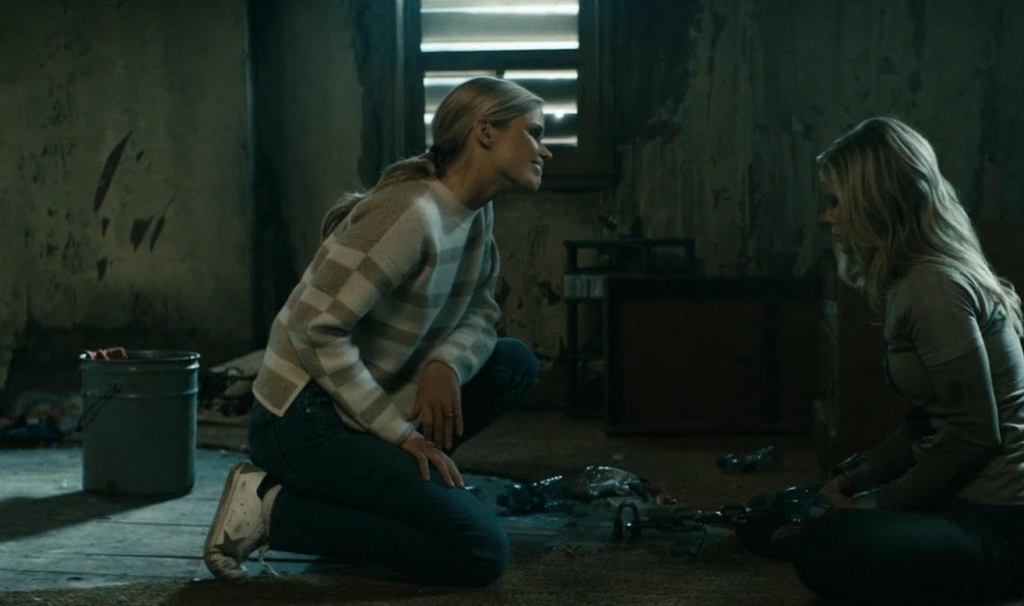
While that was devastating for the character, it was a little cathartic for those of us who felt like Annie was a little too good of a good guy.
What didn’t work
This is a small matter, but it is an issue that I want to address. After Annie finds out that Hughie slept with her doppelganger, she is furious at him.
In addition to this being unfair, it’s also a very cliche element to add. In almost every instance of a lookalike in fiction, there’s a moment where the love interest of the victim is fooled. Or almost fooled. And it’s always the same fight. It’s just played out and predictable. I’m just glad that it didn’t last very long.
Now that we’ve come to the end of the season, I can officially say that it was amazing. The story was deep and rich. The special effects were a stomach-turning good time. The character development was spot-on and satisfying. And, of course, it left me just about gagging to see what happens next. Unfortunately, it looks like we’ll have a bit of a wait. Because as of right now, the fifth season isn’t expected until 2026.

We’ve reached the second to last episode of The Boys, season four. And, as is appropriate for the penultimate episode of any show, things have to get a lot worse before they can get better.
Let’s discuss.
The story
Christmas is coming, and the whole world is getting ready. Ryan, despite being very clear that he didn’t want to appear on any TV shows or movies, has been strong-armed into participating in a Vought puppet Christmas special. He draws the line, though, when asked to sing about turning one’s parents in if they start talking about woke things.
Meanwhile, The Boys are trying to keep each other together. Butcher decides to take Sameer to the rest of the team. He also gets Frenchie out of prison, hoping they can make the Sup virus necessary to finally take down Homelander. Instead, this decision means disaster for one member of the team.
What worked
I first want to talk about Ryan’s speech near the end of the episode. Because it was exactly the moral of this whole story.
Ryan’s dad is a monster. His stepdad is also kind of a monster. But Ryan is a good kid. He cares about people, about family. And while he loves Homelander and Butcher, he doesn’t want to be like them.
Even better, this speech sounded like something a kid would say. Ryan didn’t open his mouth and start sounding like a college student all of a sudden. He sounds like a kid who misses his mom and wants to live up to the good standards she set for him. And I think that’s terrific.
Speaking of Homelander, he shot himself in the foot in this episode. I said earlier in the season that his hubris was going to be his downfall, and I was right. Without Sage, he just has the same weaknesses he’s always had. He’s going to fail because he just isn’t clever enough or patient enough to succeed.
Without Sage, I think a win is in the bag for The Boys. This isn’t to say that Homelander by himself isn’t dangerous. It’s just that he’s more like a wildfire than a controlled burn. He’s going to cause a lot of damage, but not get anything he wants out of it.
More’s the pity for him and everyone else who has to share his world.
Finally, I am thrilled with A-Train’s redemption story. I love that he wants to be a good person not to save himself, but to be a good person. His honest, pure and warm reaction to that little kid smiling at him in the last episode was heartwarming. It changed him in a moment, bringing to light a goodness that he’s been keeping under wraps for a long time.
This, along with Ryan’s courageous speech, proves once again what The Boys does so well. Yes, it’s gruesome. Yes, there’s blood and balls and batshit events. Yes, someone occasionally gets ripped in half. But there is a true human goodness in the story. One that we catch glimpses of. There are good people among the monsters. There is hope for redemption.
What didn’t work
Of course, so few things in this life are perfect, and this episode was no exception. For instance, I was irritated by the insinuation that Butcher cheated on his wife.
That just doesn’t make any sense. We’ve seen flashbacks of Billy and Becca. They were happy. He was happy. He was head over heels for her. And I don’t think it’s realistic or necessary for the character to throw in that he cheated. It does nothing to add to the story, it’s just a weird and offputting moment.
Doesn’t Butcher have enough to hate about himself? Can’t we just give him that at least he was a good husband?
Finally, I kind of hate that we ended up with Annie being caught. It’s just cliche, which is something I don’t normally say about this show. It feels lazy unless they do something very clever with it in the last episode. Which, I suppose, they might.
Next up is the season finale. And with this season being as insane as it has been, I’m expecting nothing short of bloody fireworks. And I mean literal fireworks of blood. At this point, would it surprise anyone?
 (4 / 5)
(4 / 5)
Episode six of The Boys was one of the most surprising episodes of the series so far. And that is certainly saying something. Because this season has so far been bonkers.
The story
Our episode today revolves around a party at Tek Knight’s lovely mansion. Yes, it does look just like Wayne Manor.
The Boys know that Tek Knight is working with Homelander on something, but they don’t know the details. So they decide to send Hughie in to bug the mansion.
Because that’s worked so well the other two times he’s tried to hide a bug!
It should surprise no one that this time goes no better. Hughie finds himself in Tek Knight’s basement. And by that I mean his BDSM dungeon.
Meanwhile, the party upstairs is no less disturbing. Homelander and Sage are trying to convince some well-off political donors to support a cue after the election. When pressed for details on his plan, Homelander freezes. He looks to Sage for help, but she wasn’t recently shot in the head and still in the junk food stage of her healing.
Fortunately, or unfortunately depending on your point of view, Neuman jumps in and saves the day.
What works
If I’m going to say one thing about this episode, it didn’t hold back at all. I didn’t expect them to show a character masturbating, sitting their bare behind on a cake, or spraying breastmilk into someone’s face. But every time I thought they’d cut the scene and let something be left to our imagination, they did not do that.
This is a dangerous move. Whenever you show the monster, you run the risk of them not being scary enough, or gross enough. As Stephen King says in Danse Macabre, to leave this sort of thing to the imagination if the reader makes things so much worse. So when they finally experience the monster, they might say that this isn’t so bad. It could have been so much worse.
But in this case, they managed to avoid that by making the scenes, especially the ones in Tek Knight’s dungeon, so much worse than I imagined it would be.
What doesn’t work
While this was a deeply disturbing episode in many ways, there was one really innocent and sweet moment.
And yes, I did have a problem with it.
Confronted by Firecracker, Annie decides to apologize for spreading rumors about her when they were kids. She tells her that she is genuinely sorry.
And I believe her. I don’t think Firecracker did, but I did.
So why is this an issue? Because I’m starting to think that Annie is maybe too nice. She is too good.
I know that Annie is our good guy. But every one of the other good guys has flaws. Hughie let his pride get in the way and took Temp V. MM hid himself from his daughter instead of teaching her to work through her emotions. Kimiko is far too closed off and has a hard time trusting others. Frenchie numbs himself with drugs. And well, what hasn’t Butcher done?
It is unrealistic that Annie is just so kind and so flawless. We all have shadows in our personalities. We all have weaknesses, we all mess up. We all do things we wish we could take back. The fact that Annie doesn’t seem to have anything like that is not just unrealistic. It’s infantilizing.
Give her some deep dark secrets. Give her something real to regret.
This was a shocking episode, even for someone fairly jaded like me. I wasn’t expecting the sort of weird sexual depravity, though I guess maybe I should have seen it coming. It was dark, upsetting, tense, and funny as hell. And with just two episodes left in the season, I can imagine the stakes are only going to get higher.
 (4 / 5)
(4 / 5)
By the way, if you like my writing you can get my short story, Man In The Woods, on Smashwords and Amazon.



